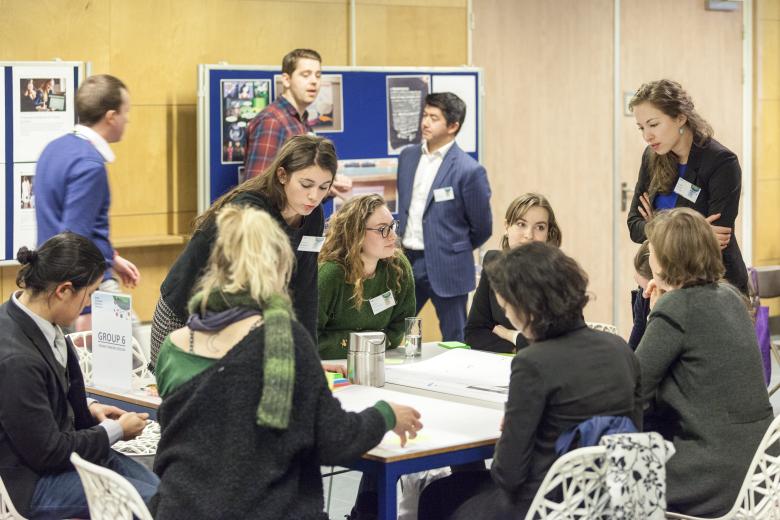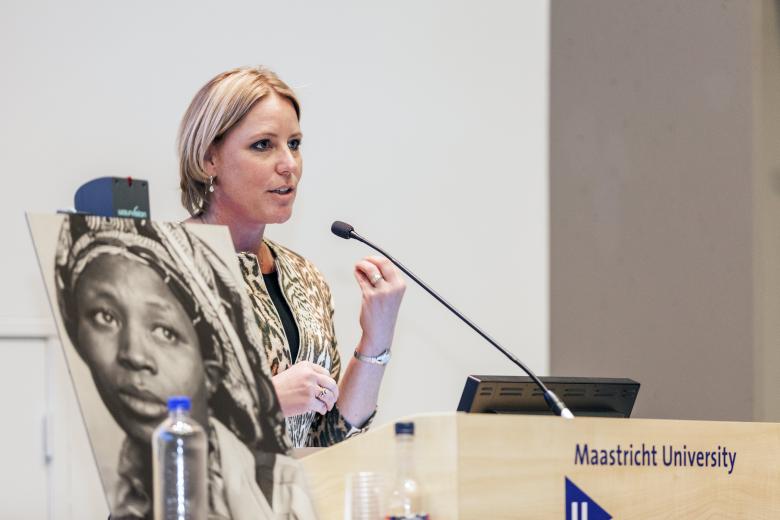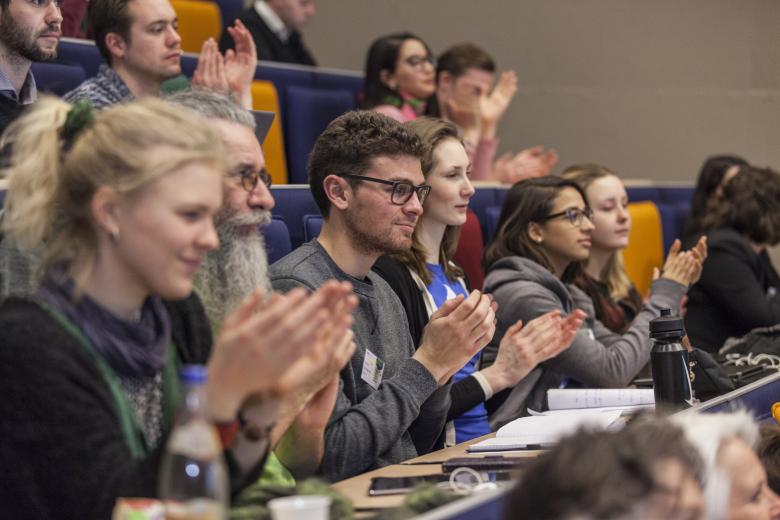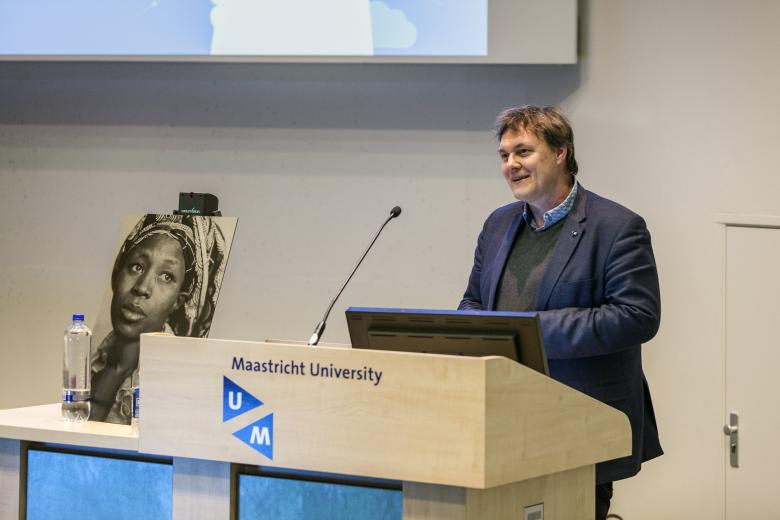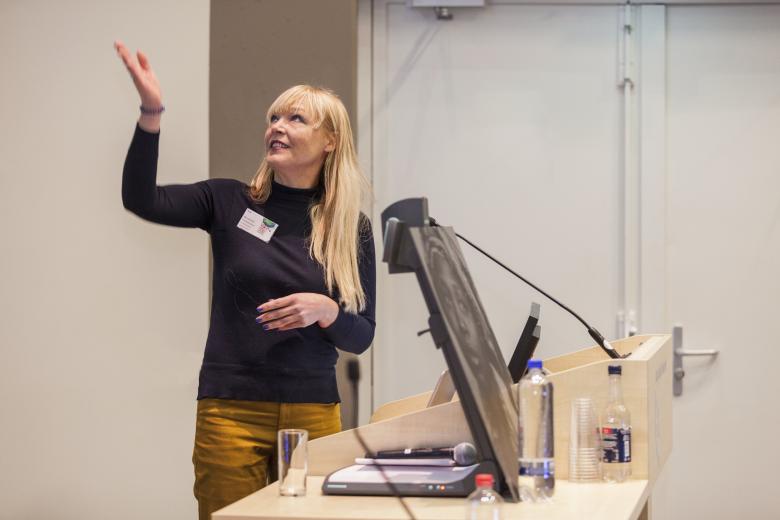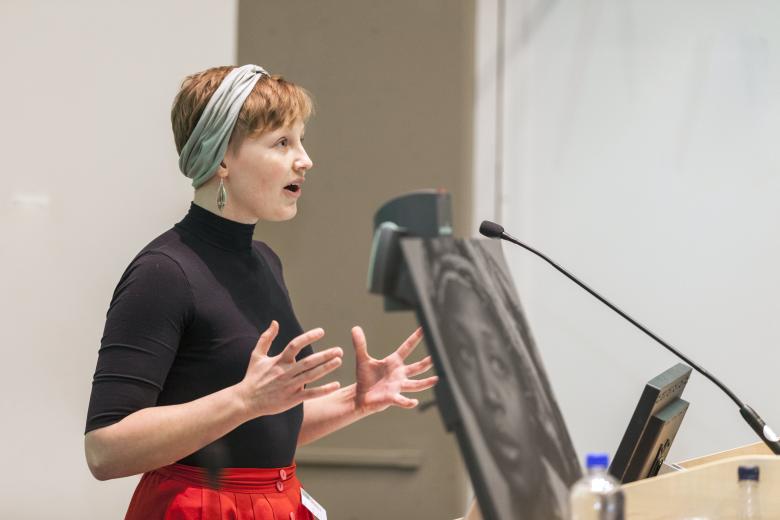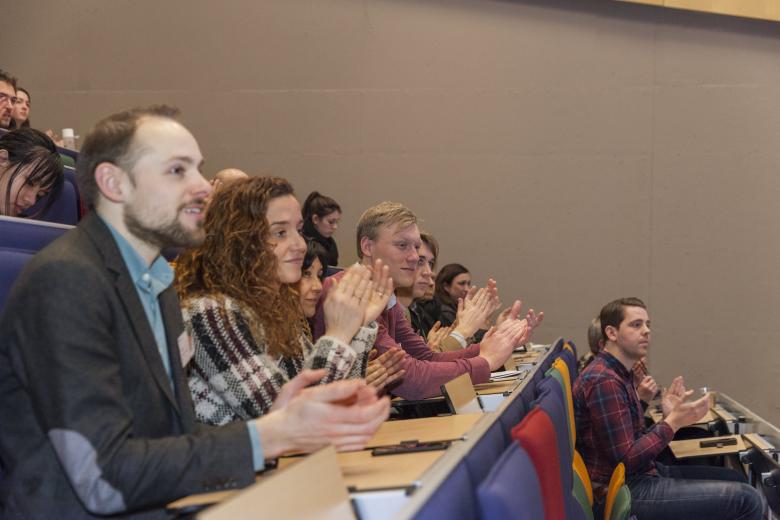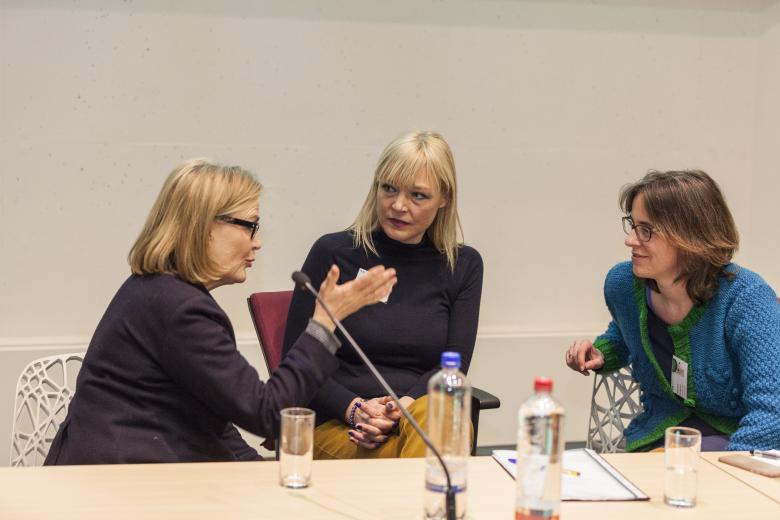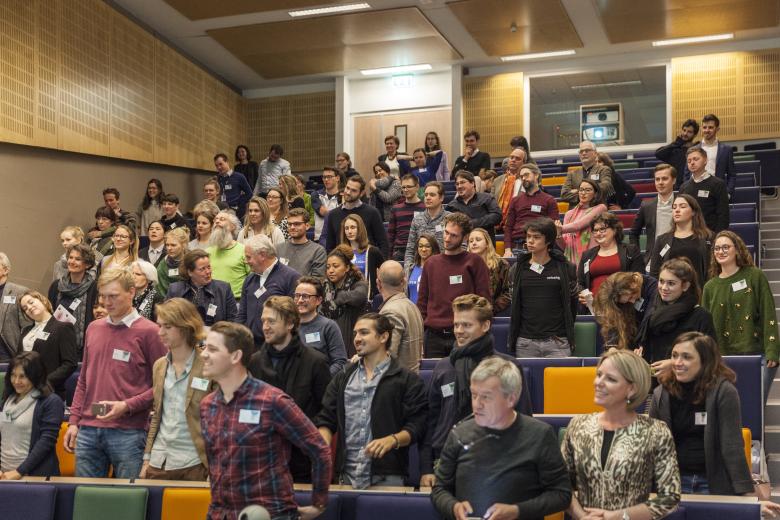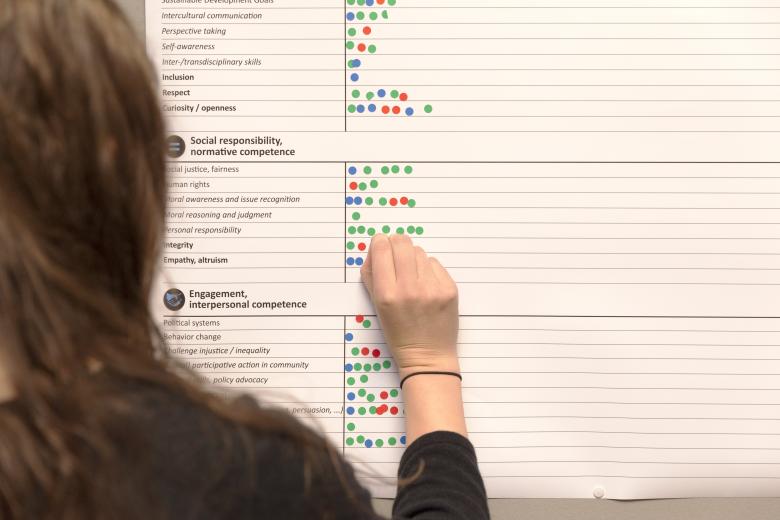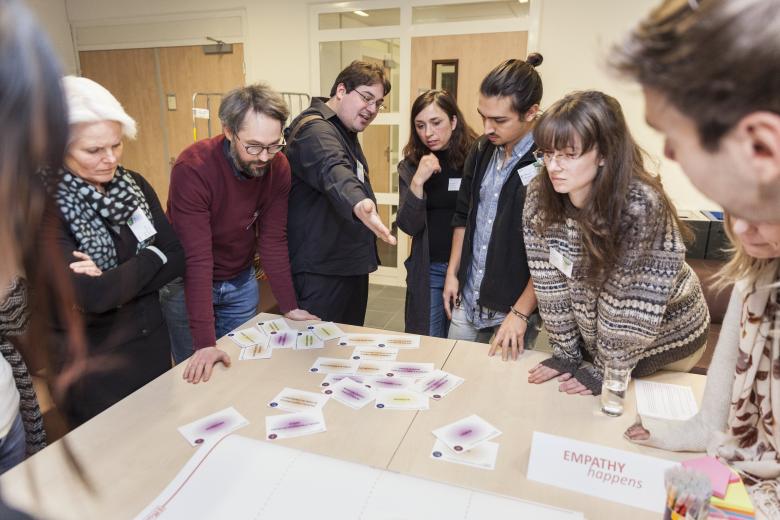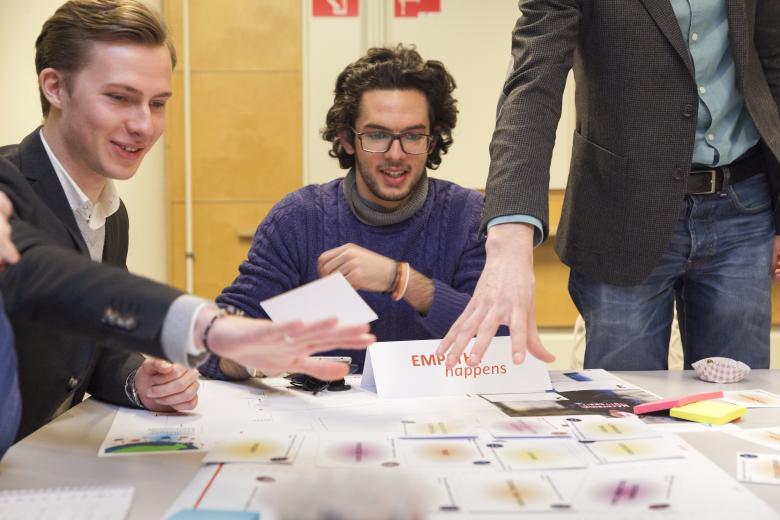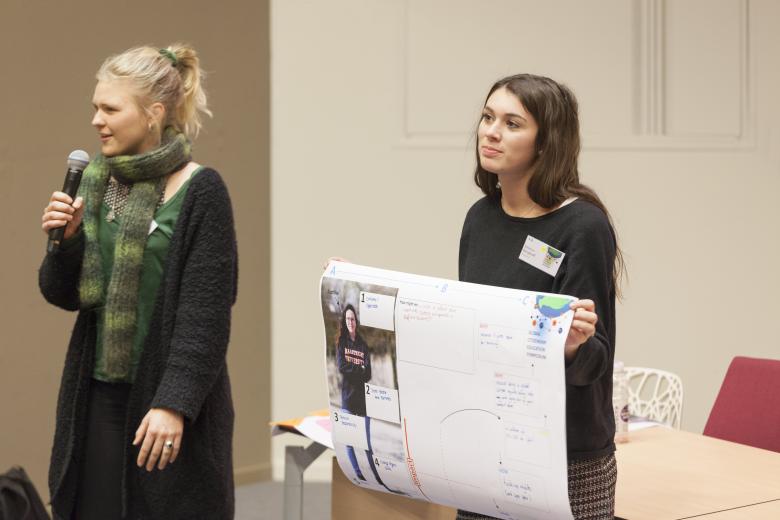Making Global Citizens in Maastricht
UM has hosted the first Global Citizenship Education Symposium on 1 March 2018, with more than a hundred students, lecturers and community stakeholders in attendance. The event was opened by Rector Rianne Letschert talking about how she has developed into a global citizen. Representatives from UNESCO and other organisations, charities and student initiatives invested in the topic gave speeches during a plenary session. As befits UM’s dedication to PBL and active problem-solving, the event concluded with a design thinking session to generate ideas on how to teach global citizenship competences.
Global Citizenship Education (GCED) has been one of UNESCO’s responses to human rights violations, inequality and poverty, as the first speaker of the day, Marieke Brugman, Deputy Secretary General at the Netherlands National Commission for UNESCO, explained. The aim is to empower learners to understand the global nature of these issues and to become change-makers. UNESCO has defined core competences of global citizenship education such as knowledge and understanding of specific global issues and trends; respect for key universal values; problem-solving and decision-making; and soft skills such as empathy or openness as well as a proactive attitude.
UM dedicated to develop global citizens
In a bid to do its part, UM has set up an EDLAB project group comprising a student and a teacher from each faculty to see how our education could cater to those needs. Among other things, the group scanned all curricula and noticed that most of the courses explicitly focussing on global citizenship competences are concentrated in a couple of pockets across the university, although many more programmes have them as key learning outcomes.
“PBL, as an active learning method where groups of international students work on complex problems, is particularly well suited to develop these skill-sets,” explains Herco Fonteijn, associate professor at the Faculty of Psychology and Neuroscience and a member of the group, “but it is a questions of calibrating it accordingly: which educational formats do you use to teach GC competences alongside the different learning outcomes of an already very full curriculum. Each programme faces different challenges but there is a lot of innovation happening.”
The GCE work group had organised this symposium to raise awareness across the university and in the wider community, and also to gauge what UM can do in order to develop students into global citizens. To determine the relative desirability of learning outcomes, participants were asked to indicate which among the list of competences they deemed most important. Generally happy with the knowledge aspect, most participants put an emphasis on personal growth encompassing everything from openness to integrity, change-agent skills or courage.
Global citizenship skills in our own backyard
The speeches on the day offered inspiration regarding approaches as well as results. Local organisation Trajekt gave an overview of its projects; among them one that allows students to have a positive impact as neighbourhood mediators for residents complaining about students’ misbehaviour. This requires international students to establish a rapport in a foreign language with someone of a different background airing genuine grievances. Thus, they cross boundaries and develop global citizenship skills in their own backyard. Global problems, by their very nature, manifest everywhere and there are many ways for students to engage with the big challenges of our day on a local level here in Maastricht. UM even has established Match, a UM project to foster student community engagement, to connect students with dedicated organisations in the region.
Other presentations similarly told stories of extraordinary student engagement and initiatives. De Bildung Academie is a student-led platform that has developed academic programmes furthering students’ personal development. Roos van Amstel explained how they are trying to promote educational innovation in co-creation with teachers and community stakeholders. One Young World, represented by one of its founders, Kate Robertson, is a charity that brings together the brightest young leaders from around the world in a summit on ethical leadership. Their last summit included delegates from 196 countries and was dubbed “the junior Davos” by CNN.
Fostering personal development on top of teaching
These encouraging examples of highly motivated students raise the question of intrinsic motivation versus incentives (such as credits or certificates): the students taking those opportunities are usually highly motivated and already possess a global citizen’s outlook and skills. But UM wants to be inclusive and allow everyone to develop in this direction. Interestingly enough, it may not matter too much whether students engage in those projects to build their CV, to learn skills, or because they think it’s the right thing to do. “We know from research that you can reinterpret yourself – your idea of who you are – based on the behaviours you notice yourself engaging in” explains Fonteijn, who is also one of the organisers of the event.”
He adds that the empathy or courage are indeed teachable skills: “Recent research shows that many personality attributes traits are fluid, so you can have short intervention programmes that have lasting effects on traits characteristics like emotional stability – our personalities are to some extent malleable. Education can have an impact – it’s never too late to grow as a person, whether you are a student or a lecturer.” It is a small step from PBL to service learning, i.e. designing solutions for problems meaningful to the community, thus allowing learners to develop normative competences.
Optimistic for the future
After all eight design thinking groups had presented their solutions, they were asked to contribute one last time: during an anonymous ballot 79 out of 80 participants indicated that they wanted to be involved in further activities on the topic. This, along with the work of the project team who organised the event, shows that there are many people across UM who are dedicated to global citizenship education – and one who isn’t.
Also read
-
Maastricht Business Days 2024: Building bridges between talent and opportunity.
The Maastricht Business Days (MBD) have been a hallmark of the School of Business and Economics (SBE) since their inception in 1996, standing out as the most prestigious student recruitment event. Organized by SCOPE, the faculty’s dynamic study association, the MBDs connect over 600 students...
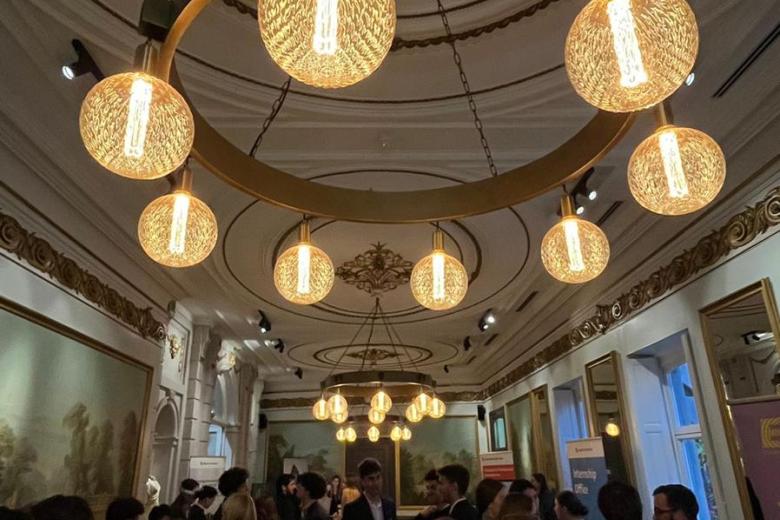
-
INKOM 2024
From Monday 19 until Thursday 22 August students will get to know each other and the city of Maastricht. This week is about getting to know Maastricht, the city where you will meet new people and you will have to learn to find your way around again. Not just at the faculty, the library and the spor...
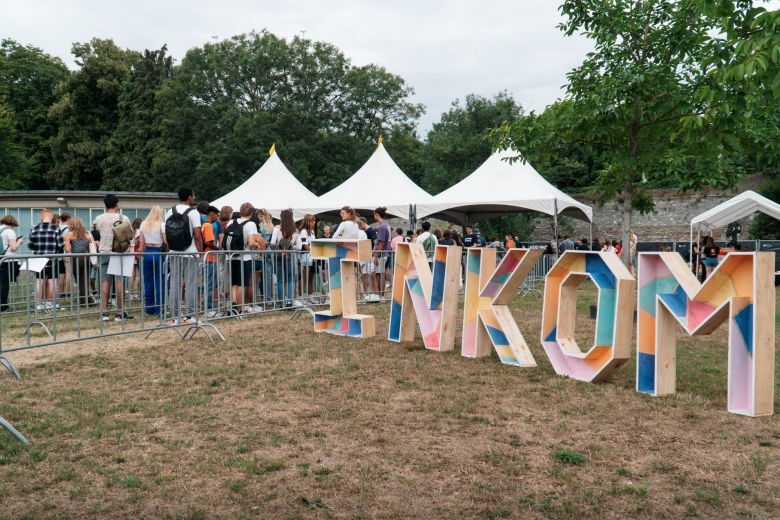
-
Living and working at PITground in Sittard
Living in Sittard and studying in Maastricht, Eindhoven or even Tilburg or Leiden. A few years ago, this was hard to imagine, but nowadays it is increasingly common. Sometimes out of necessity, but often also as a conscious choice. The rise of more creative places to live outside the traditional...
